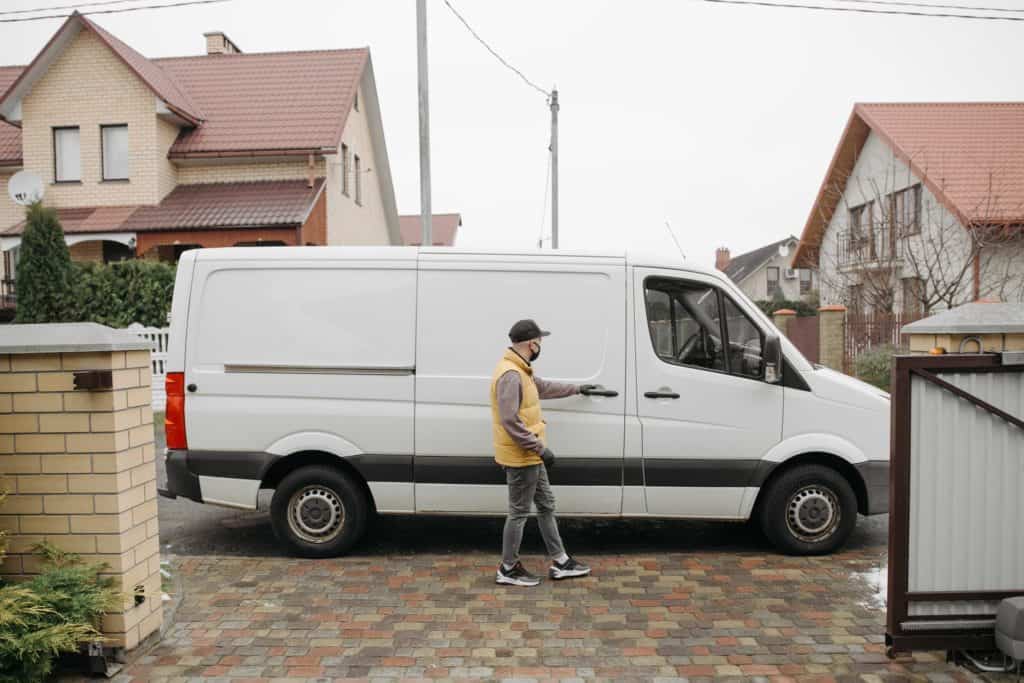Homeowners associations exist to preserve property values, to ensure vibrant communities, and to boost quality of life for everyone. In pursuit of these goals, your HOA may develop and enforce a number of rules and restrictions with regard to home decor, repairs and additions, and beyond. And don’t forget about HOA parking rules! Most HOAs have some clear parking rules in place, ensuring that homeowners know where they can and cannot keep their vehicles, whether street parking is allowed, etc.
Parking rules are important to the overall goal of the HOA. With the right parking rules (and the corresponding parking enforcement), homeowners associations can prevent there from being an unsightly hodgepodge of vehicles on the side of the road, or in front of a particular home. Additionally, HOA parking guidelines can ensure that all residents are assured that they will have parking spaces available within the community, as needed.
Even with a clear parking policy in place, however, HOA parking issues can arise. The question is, what are some of the most common HOA parking issues? And related to that, how can your HOA respond when there are parking issues within the community?
What are the Most Common HOA Parking Issues?

To begin with, let’s consider some of the most common parking issues that show up in HOA communities. There are four major ones:
- Crowded streets. Parking enforcement is important for keeping the streets within the community free and clear, ensuring everyone (including pedestrians) can get to where they need to be with convenience and ease.
- Overflowing driveways . When a homeowner’s driveway starts resembling a used car dealership, it can tarnish the aesthetics of the whole HOA community, undercutting the association’s mission to preserve property values. Again, clear parking rules can help minimize this problem.
- Insufficient parking spaces. HOA parking rules aren’t just about telling people what they can and cannot do. Parking rules should also help ensure that everyone who lives and pays dues within your HOA can find the parking spaces they need. This is a quality of life issue for your homeowners.
- Disputes over HOA parking. Finally, note that HOA parking rules exist to cut down on disputes among homeowners, and to ensure that nobody ever gets into a fight over who gets to park where. Again, having clarity in your parking regulations is critical here.
These are just a few of the parking problems that can show up within an HOA. Now, let’s consider some of the homeowners association parking policies that can mediate these issues.
Different Options for HOA Parking Enforcement
First things first: There’s no cookie-cutter or one-size-fits-all solution to your HOA’s parking concerns. Parking regulations will look different from one HOA to the next, depending on the size of the HOA, the amount of parking space available, and other factors.
In terms of some general ideas for parking regulations, however, here are some notions for your HOA to consider. (Note that, upon the adoption of association parking rules, you’ll want to verify that your policies are codified in the cc rs.)
Regulating Where People are Allowed to Park

One option for parking enforcement is to impose some specific rules about where homeowners can and can’t keep their vehicles. This is probably the most common form of HOA parking enforcement, and often, it’s easy enough to outline the expectations. Homeowners in your HOA may be asked to park either on their driveway or in their garage. In a condominium complex, you might assign a certain number of spaces to each unit.
Also note that your HOA parking regulations can stipulate what types of vehicles may be parked in the parking lot. For example, when it comes to vehicles that are poorly maintained or obviously inoperable, the HOA is well within its rights to ask the homeowner to park the car in a garage. With that said, just make sure that all association parking rules are enforced consistently, without any hint of favoritism or prejudicial treatment.
Within a gated community, your HOA can also make regulations about parking on private streets or on the curb. If your association includes public roads (as opposed to private streets), however, you likely don’t have that legal authority.
Regulating How Long People Can Park
Another step your HOA might consider is regulating parking duration.
Now, when it comes to homeowners who are parking in their own driveways, the answer is going to be that they may park there for as long as they like. But for private streets and curbside parking, as well as parking in a communal parking lot, your HOA might seek to impose time restrictions. For example, you can restrict parking in these common areas to 24 hours. If you wish to further limit the duration certain spots are available, you can consider posting signage, warning vehicle owners of their narrow window.
Your HOA may determine that this kind of policy isn’t needed at all. If you have a problem with people leaving abandoned cars parked throughout the community, potentially to the detriment of property values and community upkeep, then these clearly-defined rules may be your best option.
Regulating Types of Vehicles

You can also consider using your HOA cc rs to prohibit certain types of vehicles. Usually, rules like these exist to prevent homeowners from parking big, ugly, clunky-looking vehicles on their property. For example, if you decide to make a rule like this, it will most likely be used to prohibit against vehicles like these:
- RVs
- Trailers
- Commercial vehicles
- Boats
Even if these vehicles are in really good condition, your HOA may still wish to take a uniform stand against them, simply to maintain the aesthetic appeal of the community.
Final Tips for HOA Parking Rules
As you think through your options for HOA parking restrictions, here are a few closing considerations.
- Remember that parking guidelines should always balance aesthetics with functionality. You want to place parking rules that further the upkeep of the community, but you also need to ensure that your homeowners have plenty of space for their vehicles.
- Keep handicap parking needs in mind, and ensure that your HOA has a sufficient number of accessible parking options.
- Communication is key. Always be sure that your rules and restrictions are written down in key governing documents, and that those governing documents are readily available to everyone in your HOA community.
- Training is another important factor. Remember, HOA board members are going to need to be active and consistent in enforcing parking policies, so training for these HOA board members is a must. Specifically, try to ensure that members are always well-versed in issues related to junk vehicles, parking spots, public street parking areas, fire lanes, public parking lots, and beyond.
- Finally, as with all thing related to cc rs, just keep in mind that selective enforcement is a real danger. Be sure that you are implementing your homeowners association parking rules in a consistent way.
Questions? Connect with Kuester Management Group
As you think about the different ways to handle parking conundrums within your community, we welcome you to contact Kuester Management Group. We have ample experience helping HOA boards draft and enforce policies of all kinds, including parking guidelines. We proudly work in communities throughout Charlotte area and Myrtle Beach Area. To speak with a property management expert, reach out to the Kuester Management Group team at your next opportunity.

